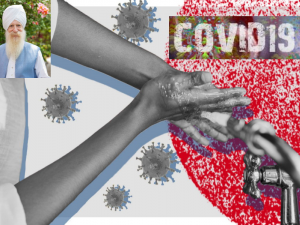How Old are the Cells in Your Body
& Which Can and Can't be Renewed?
©2015 Health Realizations, Inc. Update
You may have just celebrated your 30th, 50th, or 75th birthday, but the cells that make up your body are actually much younger than that. If you go by the numbers, your cells are, on average, around 10 years old, or less.
 In fact, most of your body's cells are constantly being
replaced, although its DNA stays the same from the moment
the cell is first created (by its parent cell dividing).
In fact, most of your body's cells are constantly being
replaced, although its DNA stays the same from the moment
the cell is first created (by its parent cell dividing).
Because of this, Jonas Frisen, a stem cell biologist at the Karolinska Institute in Stockholm, was able to develop a method to determine just how old your cells really are.
"Dr. Frisen recalled that the nuclear weapons tested above ground until 1963 had injected a pulse of radioactive carbon 14 into the atmosphere. Breathed in by plants worldwide and eaten by animals and people, the carbon 14 gets incorporated into the DNA of cells each time the cell divides and the DNA is duplicated," writes author Nicholas Wade in his New York Times article "Your Body is Younger Than You Think."
Dr. Frisen was able to determine cells' ages in various tissues based on their extent of carbon 14 enrichment. His findings, published in Cell, revealed:
- Cells from your rib muscles last an average of 15.1
years
- Cells in the main body of your gut are about 15.9 years old (the cells lining your stomach, meanwhile, are known to last just five days)
What are the regeneration rates of other cells in your body?
- Your red blood cells last about 120 days, on average
- Your liver regenerates completely every 300 to 500 days
- Your entire skeleton is replaced about once every 10 years
In the past, it was believed that your brain cells did not regenerate. And Dr. Frisen did find in his study that cells from the visual cortex area of the brain did not appear to renew.
However, brain cell regeneration, or neurogenesis, in humans was discovered in 1998 by Fred Gage of the Salk Institute in La Jolla, California and his colleagues. They found that new neurons are created in the hippocampus, a brain region involved in memory.
 So it seems that even certain areas of your brain are capable
of regenerating.
So it seems that even certain areas of your brain are capable
of regenerating.
The cells in your body that are thought to stay with you for a lifetime (and do not regenerate) are, in fact, quite limited and include:
- The neurons of your cerebral cortex
- The cells of your eyes' inner lens
- Possibly the muscle cells of your heart
Since your cells are constantly forming anew, it would seem that we would all live forever. It doesn't work this way, however, because a cell's parent DNA is translated to the new cells. Overtime, mutations in your DNA may develop, and those mutations get passed on.
Meanwhile, each time a cell divides, the telomere caps on chromosomes get shorter, which limits the number of times a cell can divide.
What can you do to keep your body's cells in top condition for as long as possible?
- An excellent first step is to get regular physical exercise. Gage found that exercise is
one of the best ways for adults to grow new brain cells.
- Gage also found that staying active mentally -- by reading, doing crossword puzzles, learning new things, working part-time and socializing - can also help you to keep your brain cells strong.
- Eat a healthy diet without a lot of simple sugars.
- Relax and find ways to relieve stress. Stress is so deleterious to the brain that
relieving stress should be a top priority.
- Avoid environmental toxins as much as possible. You can do this in part by using natural cleaning products.
Sources
Cell. Vol 122. 133-143. 15
The New York Times
NewScientist.com
NewScientist.com





